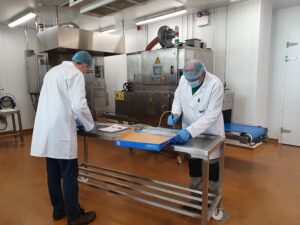 |
The Irish seafood industry as we know it is in a period of transition, due to a multitude of factors. In recent years, the Covid-19 pandemic, Brexit, and climate change have created the perfect storm demanding the industry to change quickly and adopt an agile approach to their operations.
Brexit and Covid-19 continue to impact fishing quotas and markets; while climate change is driving widespread changes to supply chain policies. When combined, these factors are impacting access to available resources, shifting consumer demands, and increasing operational costs. With so much disruption to business, seafood processors need to seek out new and more innovative ways to stay competitive. One area that seafood processors can control is the better utilisation of technologies that can assist with this which are the focus of this report.
The aim of this project was to technically appraise ‘individual quick freezing (IQF) and thawing technologies’ for the Irish pelagic and demersal sectors, to provide an informative, useful, and detailed report for those considering investing in such technologies. Within the report both freezing and thawing technologies are discussed, alongside their advantages and disadvantages, costs, and feasibility, including the results of several Bord Iascaigh Mhara (BIM) run trials.
The project team would like to thank everyone who contributed to this report and hope that it proves to be informative and insightful.
